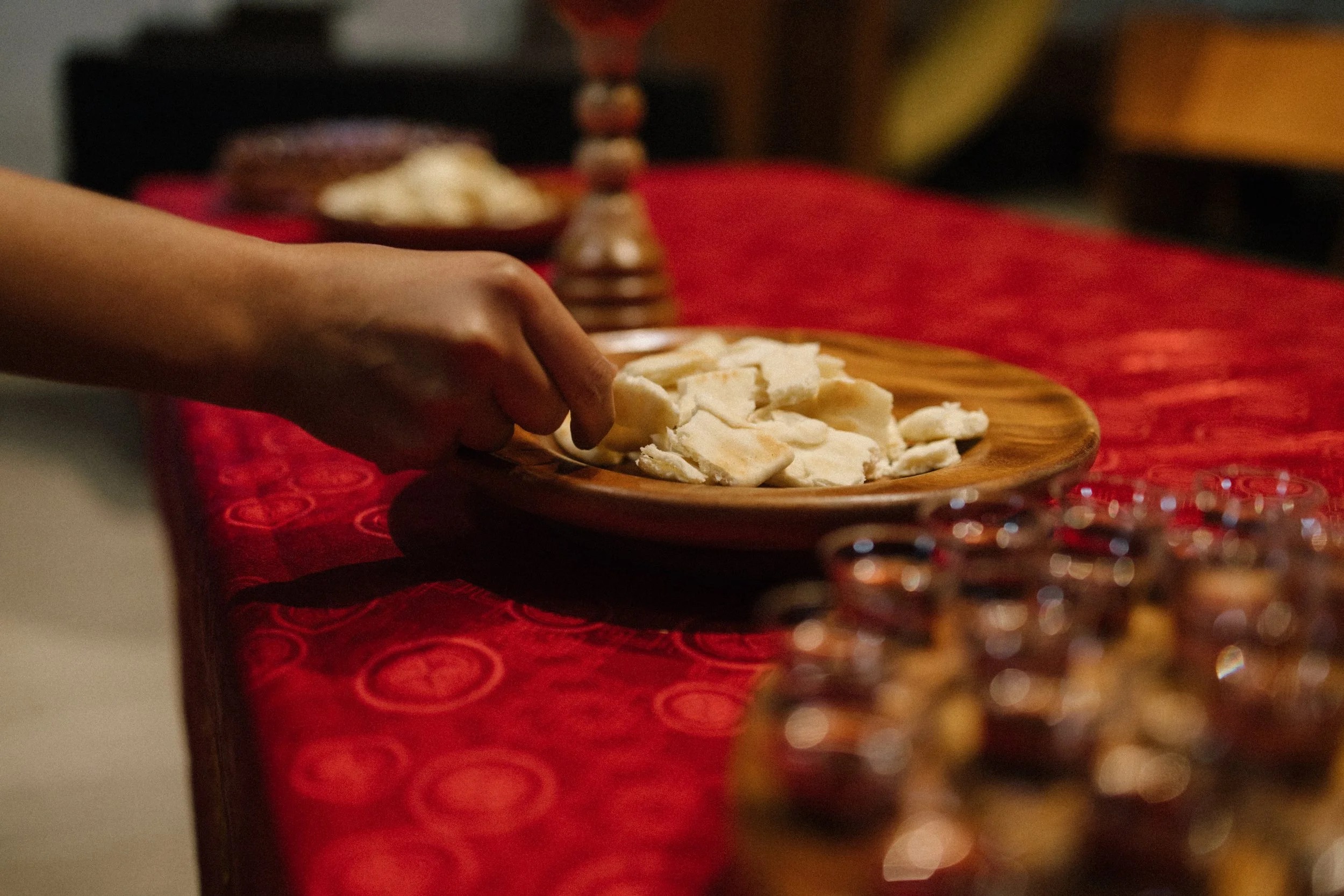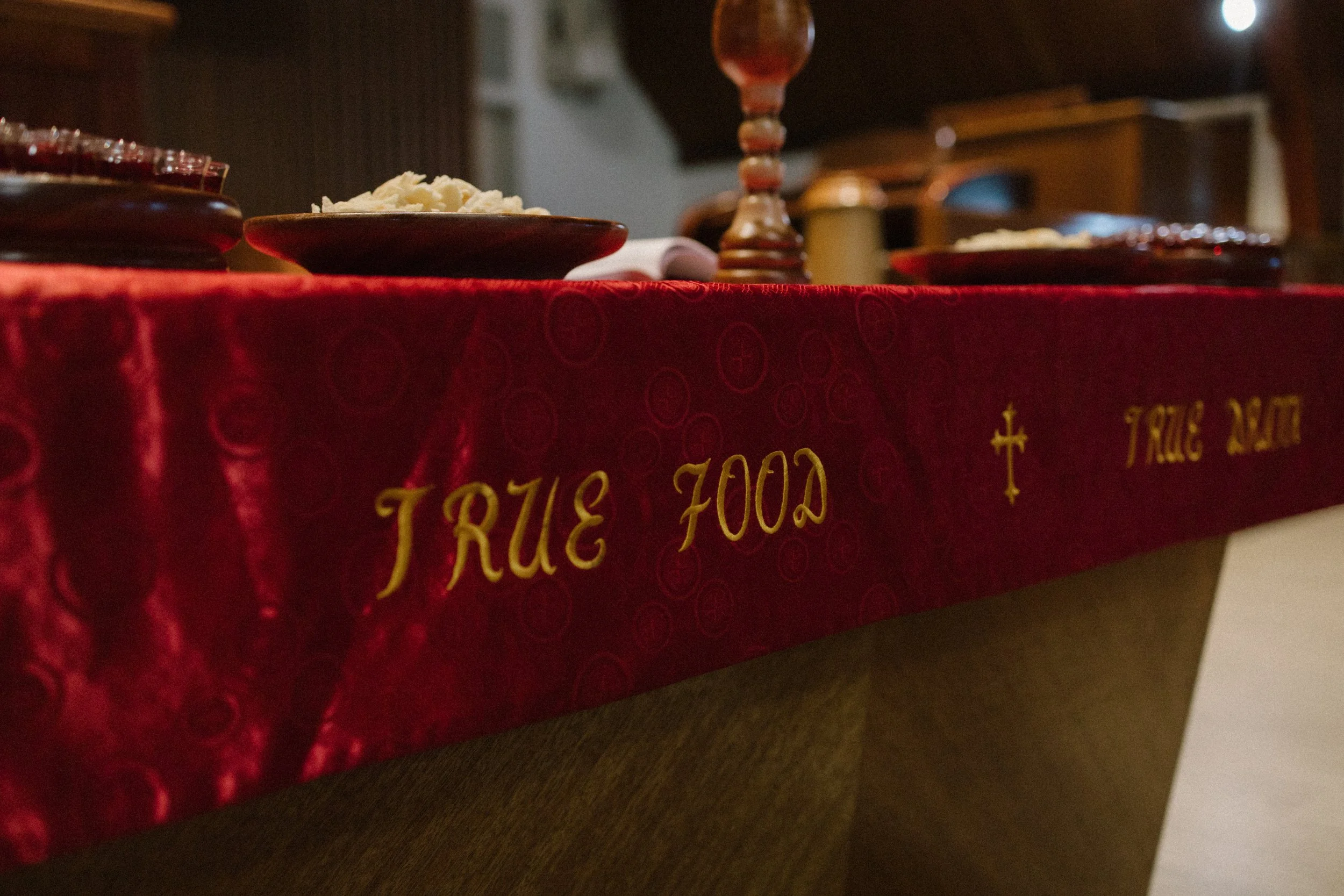Knowing Holy Communion
Sunday Seminary—18
Know What You Believe. Believe What You Know.
Every family has a table—whether a literal large one in a dining room or a blanket in a park. It’s the place we share stories, laugh, argue, and reconnect. Even when the food is simple, the table reminds us: I belong.
But what happens when the table is empty—when people drift apart, or there’s an empty chair where someone used to sit? We feel that ache deeply.
On the night before his death, Jesus gathered his disciples around a table to celebrate Passover. But this meal was different. He wasn’t just feeding them—he was giving them himself. The bread and cup were his promise that, even when the world feels empty, we’ll never be alone at his table.
Matthew 26 tells us Jesus “took bread…blessed it…broke it,” and said, “Take, eat; this is my body.” Then he “took a cup” and “gave thanks,” saying to his disciples, “Drink of it, all of you, for this is my blood of the covenant, poured out for many for the forgiveness of sins.”
This language recalls the covenants of Scripture—where God attaches visible signs to his promises—from the rainbow to circumcision to the blood of the covenant at Sinai—and even calls the sign the covenant itself—the rainbow, circumcision, the blood is the covenant.
In our Sunday Seminary series, we’ve recently been exploring the sacraments—signs and seals of God’s grace. Today, we look at the Lord’s Supper, or Holy Communion, where Christ gives a tangible expression of his grace to nourish and sustain our new life.
A Supper to Nourish New Life
Belgic Confession article 35 calls communion a supper to nourish new life—it “nourishes and sustains those who are born again and ingrafted into his family, the church.”
This meal isn’t our way of earning grace. It’s God’s way of feeding us with Christ’s grace—the “forgiveness of sins”(Matt. 26:28).
Just as ordinary food keeps our bodies alive, this sacred meal sustains our souls in faith and communion with Christ. When your heart feels weary, Christ invites you to his table to “taste and see that the Lord is good.”
The Analogy of Bodily & Heavenly Life
Our confession draws a beautiful analogy between physical and spiritual life. From birth, we depend on God’s provision—he gives food and drink for our physical life. But our souls also hunger, and only Christ can satisfy that hunger—that’s the second kind of life: spiritual. The prophets pictured it as a “feast of rich food,” overflowing with grace.
To nourish it, Jesus said, “I am the living bread that came down from heaven…whoever eats of this bread will live forever.” (John 6:51) Just as bread sustains your body, Christ sustains your faith. Through faith, we feed on him—receiving the life he alone can give.
The Sacrament of Christ Our Heavenly Life
To represent Christ, our heavenly bread, he instituted earthly signs—bread and wine—as sacraments of his body and blood.
Article 35 says he did this “to testify to us that just as truly as we take and hold the sacraments in our hands and eat and drink them with our mouths, so truly we receive into our souls, for our spiritual life, the true body and blood of Christ.”
That’s the wonder of this meal: the same Christ who once sat at a table in Jerusalem now feeds us by faith. Faith is the hand and mouth of the soul, receiving what the bread and wine signify—Christ himself.
The Mystery of the Meal
These aren’t empty symbols but living signs. Christ works in us through these holy signs as means to nourishes us. How? It’s a mystery beyond our understanding—but not beyond our faith.
“What is eaten is Christ’s own natural body and what is drunk is his own blood—but the manner in which we eat it is not by the mouth but by the Spirit, through faith.”
Christ remains in heaven, yet through the Spirit he communicates himself to us at the table. We don’t comprehend the mystery; we apprehend it by faith.
Conclusion
Christ gave communion as a tangible expression of his grace to nourish and sustain our new life. Think back to the family table—a place of belonging, conversation, and joy. That’s what Christ invites you to in Holy Communion.
Every time you come to his table, he welcomes you, feeds your hungry soul, and reminds you: I belong here with him.
At this table, taste grace.
Know you’re never alone.
Christ, the host, feeds you—not just with bread and wine, but with himself.



